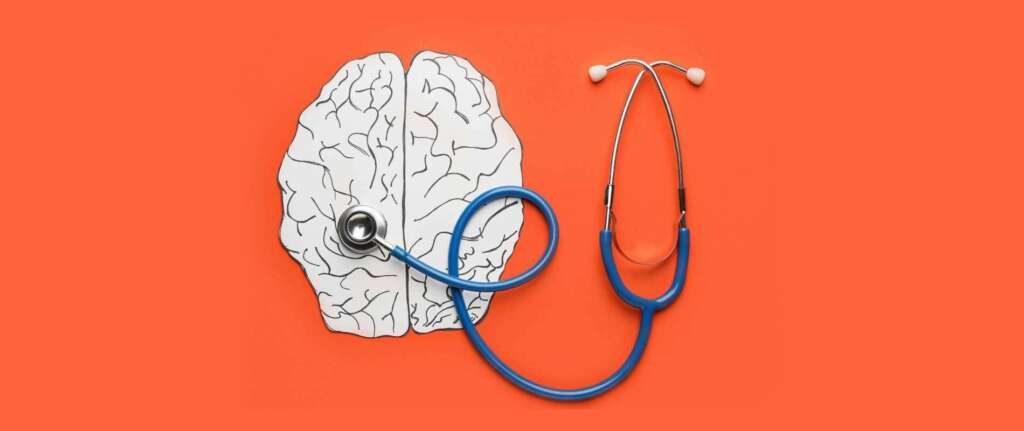The human brain is a complex structure responsible for reasoning, memory, coordination, and much more. It starts to develop in the embryonic stage and is mature until age five. Scientists believe the human Brain only shows mild to moderate behavioral changes after age five. The essential functions are similar in every human transcribed by the DNA. However, with time, the human Brain’s efficiency in delivering these basic sets of instructions to the organs decreases.
Aging and mental health
Age is not just a number when it comes to cognitive capabilities. Brain and mind are two of the most confusing terms in everyday use; the Brain can be considered the hardware, while the reason is the software that runs the functions in the Brain. As you age, mental health can also be disturbed due to multiple factors.
Old age brings some diseases that are hard to avoid these days. They pose a significant setback to the mental health of the elderly, who start to consider themselves weak and find no purpose in their life. The feeling of being alone is prevalent in old age as you lose companions that inculcate negative energies and anxiety in you.
However, nowadays, many mental health workers understand that psychological issues are real and need to be taken care of. They provide therapies to help improve the elderly’s approach to life. Many credible therapists in Bromley have successfully counseled several senior citizens to have positive energies inside them.
Facts about the aging Brain
A sad reality of aging is the slow processing of the Brain. However, as you gain wisdom and experience with age, your ability to respond to stimuli decreases; there are specific astonishing facts about the Brain in the older stage of life that you might not know about. Here is a list of these facts;
1. Memory
Though you might have been told how eating almonds can strengthen your memory, to some ( or even greater) extent, weakening memory is brought about by aging. The hippocampus, located in the temporal lobe of your forebrain, is responsible for memory. With time, the hippocampus becomes weak, and it becomes hard for your conscious Brain to recall some memories.
2. Changes in the brain structure
The brain is a part of your physical being. When aging changes how you look, it also brings specific changes to your Brain that makes it slightly less efficient. The features of the Brain concerned with complex thinking and reasoning shrink to some degree. In some neurons, the synaptic relay system loses efficiency, or the messenger conduction system becomes weak, so there is an overall delay in coordination inside the body. Not only this, but the blood flow to the Brain also decreases in old, causing slower responsiveness and decreased cognitive capabilities.
3. IQ level
Don’t be surprised if the elderly around you who used to have significant mental capabilities cannot solve lesser complex problems in their old age since aging impacts your IQ level. As mentioned earlier, the blood flow to the Brain is reduced, and some areas of the Brain concerned with thinking shrink; this decreases the IQ level of a person since they do not have the same ability to process information in their mind. There are many exceptions in this case, but we must consider ourselves lucky rather than wise.
Measure to improve brain health
If you want your old age to be less stressful and more happening, you need to take care of yourself today. Although it is inevitable to have the symptoms of old age mentioned above, their intensity could be decreased to deficient levels.
The movement issues you get old are due to the decrease in the efficiency of neurons carrying messages towards your muscles with the help of neurotransmitters. To avoid this, you must eat a healthy diet with plenty of proteins, vitamins, and minerals.
Dry fruits are highly beneficial for the Brain, especially walnuts, almonds, and cashew nuts, which can improve your thinking skills by ensuring all the parts of your Brain are healthy.
Conclusion
We cannot hide from the truth of aging, so it is better to accept the facts and prepare yourself for them. Self-care and a positive approach toward life is the key to survival in any phase of life.
References: https://www.nia.nih.gov/health/healthy-aging/what-do-we-know-about-healthy-aging#:~:text=Mental%20health%2C%20or%20mental%20wellness,is%20key%20to%20healthy%20aging.
https://www.ncbi.nlm.nih.gov/pmc/articles/PMC9281621/

Priyanka Khurana Goyal is a prominent Indian figure renowned for her diverse accomplishments and contributions across various fields.. Read more



